How to Choose the Best Metal Detector for Gold?
There are a variety of factors that affect a metal detector’s performance, particularly when you are looking for a gold-specific metal detector. Among these factors is the environment you are prospecting in, the frequency of the detector, the ground balancing features, and a smattering of other metal detector specifications. Continue reading for an in-depth explanation of how these factors contribute to a gold detector’s effectiveness.
Environment
One of the most challenging aspects of gold prospecting with a metal detector is contending with ground mineralization. Simply put, ground mineralization is when the soil has higher iron content than other soils, particularly in red-colored dirt or sandy soil.
Ground mineralization leads to signal interference, intermittent signals, and reduced detection depth. This can create big headaches for hobbyists, especially if they have a lower-end metal detector.
Luckily, many metal detectors come with ground balancing features that minimize the mineralization issues. Many detectors have an automatic ground balance feature, and many others also have a manual option you can adjust, depending on the ground conditions you encounter. Having the ability to manually adjust the ground balance of your detector is very important. Since gold seems to reside in many iron-rich ground conditions, you would be well advised to pick a gold detector that allows you to filter out more iron.
When you are deciding on a metal detector you specifically want to use to prospect for gold, take careful note of the ground balancing features of each metal detector. Since a lot of gold is found in very heavily mineralized soil, this is a very important feature you need to pay attention to. Look for detectors that offer a high level of ground balance, both manual and automatic, and you will be well served in your efforts of finding gold.
VLF or PI?
Metal detectors feature either a Very Low Frequency or a Pulse Induction operating system. Very Low Frequency (VLF) machines operate by sending a continuous wave into the ground and receiving any return signals from metal objects. Pulse Induction (PI) machines send singular pulses into the ground and receive any return signals from metal objects. Both machines operate differently, but they achieve the same goal of signaling metal that is in the ground.
VLF machines are the most common metal detectors used, as they can be used across a wide range of soils and ground conditions. In areas that do not have incredibly high mineralization, they generally perform very well. With proper ground balancing features set to the proper settings, very low-frequency detectors can perform well even in high-ground mineralization areas. In addition, VLF detectors are very good at discriminating against iron and other targets you might not want to find.
PI metal detectors can be used in a wide variety of soils and ground conditions as well. PI machines are commonly used in heavily mineralized soils and saltwater as they provide a consistent, highly capable detection depth and limited ground interference. Pulse induction detectors are also commonly used when searching for underwater treasure, as the sand and ocean floor are often very mineralized. PI detectors do not have great discrimination features, meaning that you might be digging many pieces of old iron or other metals you do not wish to find.
Deciding between a VLF or PI detector can seem like a challenging decision, but in many cases, either will work admirably. If you decide to purchase a very low-frequency metal detector for gold prospecting, be sure to pick one out that has good ground balance features.
Operating Frequency
When it comes to very low frequency (VLF) metal detectors, the operating frequency of your detector plays a key role in determining how your machine performs in various circumstances. In general, many metal detectors come standard with only one operating frequency set from the factory. Some models of detectors have adjustable frequencies, allowing you to change the frequency you are using to suit your needs for a particular prospecting voyage.
In general, a low frequency is going to provide you with the most depth possible, but it might not pick up very small gold nuggets, which can present a problem. On the other hand, a high frequency will not give you as much depth, but they should be able to find smaller gold nuggets a lower frequency would have missed. Clearly, this is a challenge when you are comparing detectors, as greater depth and sensitivity are both desirable, but they are inversely related to one another.
How can you possibly decide whether you want a higher or lower frequency for your VLF metal detector? This actually depends pretty heavily on the area you are gold prospecting in. Some areas are known to have many small nuggets, whereas other areas may have larger nuggets that may be deeper in the ground. One of the best ways to bridge the gap between lower and higher frequencies is to purchase a multi-frequency metal detector. Adjustable frequencies allow you to program the gold metal detector to the best possible combination of strengths for your needs.
Discrimination Features
An oft-overlooked aspect of determining which gold detector is right for you is comparing the various discrimination features offered by each machine. While many metal detectors offer at least some basic iron discrimination, there are many detectors that really take this to the next level. When you want to be purely prospecting for gold, having a very low-frequency metal detector with good discrimination capabilities can save you time. And, with gold prospecting, time is money!
One of the best ways to ensure that you are getting a metal detector with excellent discrimination features is to carefully read the description about how the detector discriminates targets. Many entry-level detectors utilize only a few notches of discrimination, which often means that you do not have great control over what metals are discriminated against and what is not. One of the best discrimination features you can have is many available notches of discrimination, allowing you to be precise about which types of metal you wish to ignore.
One important fact to note is that sometimes, using too much of a discrimination feature can actually block certain gold signals from showing up on your metal detector. Since every ground condition presents new challenges, gold can register on your detector differently at any given time. If you use lower levels of discrimination, you will be much less likely to accidentally discriminate gold out!
Waterproof/Weatherproof
Waterproof metal detectors can be a great asset sometimes, particularly when your prospecting or treasure hunting takes you into freshwater rivers, creeks, lakes, or even oceans. While purchasing a waterproof metal detector with a waterproof search coil might cost more upfront, it has the potential to make you serious sums of money in the future. Deciding whether or not you are in the market for a waterproof metal detector can be a tough question.
One of the best ways to figure out whether you should purchase a waterproof metal detector or just a weatherproof metal detector is to think about where you normally prospect. Make a list of all the places you have gone hunting in the past few years. If many of these involve situations where you are near bodies of water, you should definitely consider purchasing a waterproof machine. Just think, if you are finding a lot of gold right next to a creek, the logical next step is to hunt the creek. If you don’t have a waterproof metal detector, this will not be possible.
On the topic of weatherproof metal detectors, many modern metal detectors come with varying degrees of weatherproofing in general. You can figure out the exact waterproof or weatherproof ratings in the descriptions of the metal detectors, so always pay close attention to this.
Search Coil Choices
When it comes to search coils, the number of options can be dizzying at times. Not only are there different shapes and sizes of search coils, but each one of them serves a different purpose in regards to performance, target type, and ground coverage. There are many choices to work through before deciding on the perfect search coil for your needs.
The first big decision you must make when picking out a search coil for a VLF detector is whether you want a DD search coil or a concentric search coil. DD search coils are named this because they resemble two D’s back to back. DD coils are excellent at cutting through high mineralization in the ground, as the interference is spread out over the whole surface of the coil. In addition, DD coils are excellent for covering a lot of ground, as their large surface area can help you search much more ground much more quickly.
The other option you have if you do not want a DD coil is a concentric coil. Concentric coils are often better at discriminating than comparatively sized DD coils. Concentric coils come in either round or elliptical shapes, each with its own specific use. The only real difference between round and elliptical concentric coils is their search styles. The elliptical coil will be able to cover more ground and can also be easier to hunt in areas where you do not have much room to swing the search coil, as the narrow front might allow for more access.
Once you have decided between a DD search coil and a concentric search coil, you need to determine the size of the search coil you want. Large search coils are the best choice when you are trying to cover as much ground as possible. They also provide for greater depth. Large search coils can lack in the sensitivity department, meaning that smaller targets may be skipped over by larger coil. On the flip side, a smaller search coil can have increased sensitivity, allowing you to find smaller objects.
Additionally, small search coils are very effective in areas where trash targets abound. Small coils do not allow for as much ground to be covered and also do not give quite the detection depth you could get from a larger coil. Keep in mind that smaller search coils are generally easier to use the detectors pinpoint mode with, though pinpointing with larger search coils is easily doable, it just takes some practice.
No matter what coil you decide on, be sure to buy a coil cover, as search coils can be easily damaged, and search coil covers will help keep your investment safe!
Price
What buyer’s guide would be complete without one of the most important factors, that being the price of the metal detector? Like most objects, you certainly get what you pay for when it comes to metal detectors. While you may be able to find all kinds of great metal objects and gold with a cheaper metal detector, stepping up in price range can give you some amazing features that will allow you to find much more!
Entry-level machines are a great way to get into the hobby and become a real treasure hunter with minimal investment. You can actually find some really cool and valuable items with an entry-level detector. Entry-level gold detectors often feature some amount of ground balancing, target ID, depth indicators, pinpointing capabilities, and some decent ferrous metal discrimination features.
Mid-level machines are a sweet spot for hobbyists who are not looking to spend a fortune but still want a machine with more features and better performance. Ground balancing is often adjustable, there are a variety of more powerful discrimination features, and some of these machines even feature adjustable frequencies. Not to mention, many mid-level detectors are waterproof to a certain degree!
High-end machines are the cream of the crop when it comes to metal detectors. Powerful performance, a myriad of features, and excellent fit and finish make these metal detectors a must-have for anyone who is a die-hard treasure hunter. The high-end metal detectors provide excellent ground balance features, professional-grade discrimination levels, and powerful depth and sensitivity. These detectors might cost a bit more, but the amount of treasure you can find with these machines can more than pay for it!
As can be seen, there are a lot of factors that come into play when you are picking out the best metal detector for gold hunting. Follow this guide when you are picking out a gold detector and you will be well-served by your choice. Once you have picked out the best gold detector for you.

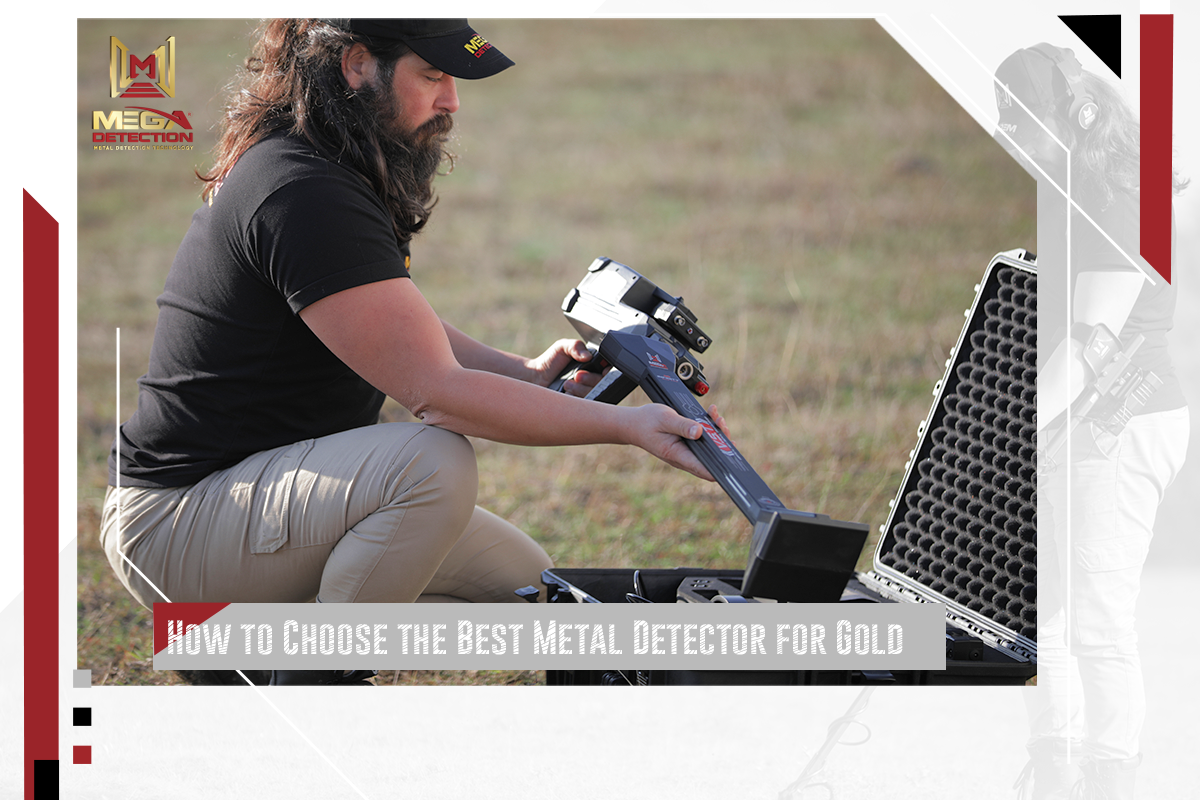
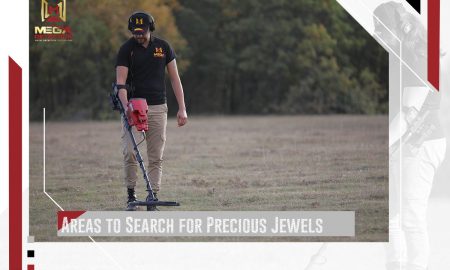


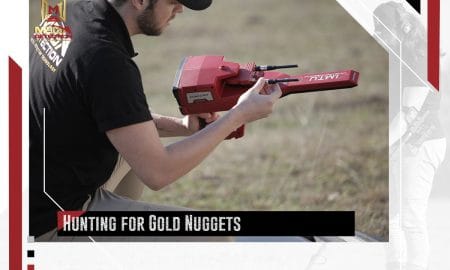
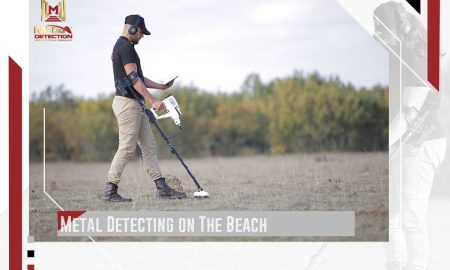



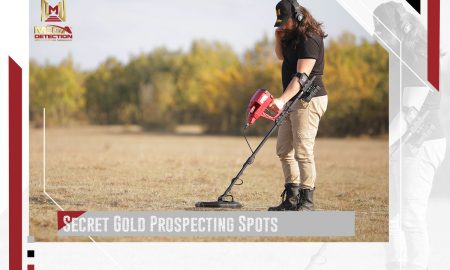

Comment (1)
[…] https://megalocators.com/how-to-choose-the-best-metal-detector-for-gold/ […]